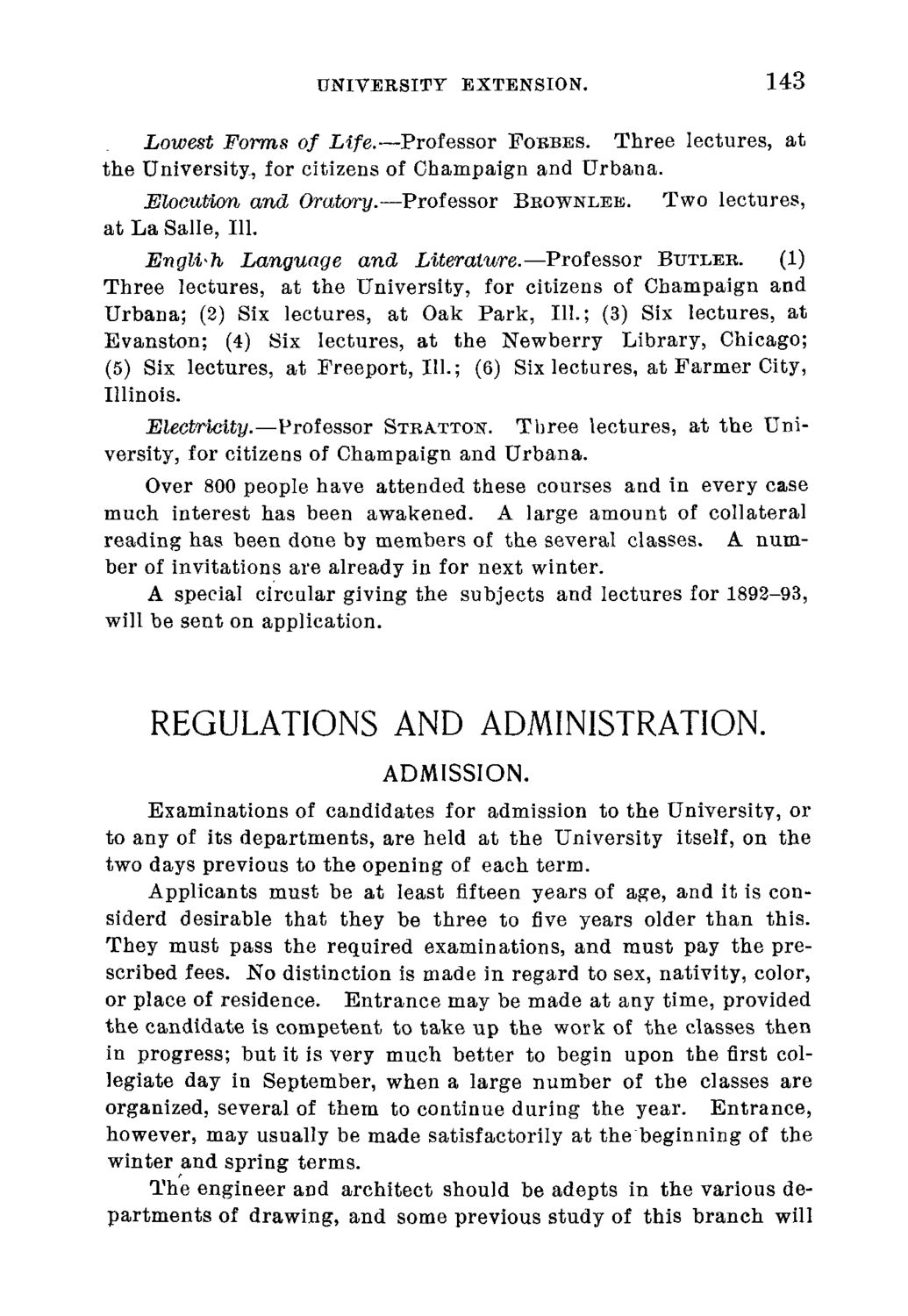| |
| |
Caption: Course Catalog - 1891-1892
This is a reduced-resolution page image for fast online browsing.

EXTRACTED TEXT FROM PAGE:
UNIVERSITY EXTENSION. 143 Lowest Forms of Life.—Professor FORBES. Three lectures, at the University, for citizens of Champaign and Urbana. Elocution and Oratory.—Professor EEOWNLEE. TWO lectures, at La Salle, 111. Engli'h Language and Literature.—Professor BUTLER. (1) Three lectures, at the University, for citizens of Champaign and Urbana; (2) Six lectures, at Oak Park, 111.; (3) Six lectures, at Evanston; (4) Six lectures, at the Newberry Library, Chicago; (5) Six lectures, at Freeport, 111.; (6) Six lectures, at Farmer City, Illinois. Electricity.—Professor STRATTOW. Three lectures, at the University, for citizens of Champaign and Urbana. Over 800 people have attended these courses and in every case much interest has been awakened. A large amount of collateral reading has been done by members of the several classes. A number of invitations are already in for next winter. A special circular giving the subjects and lectures for 1892-93, will be sent on application. REGULATIONS AND ADMINISTRATION. ADMISSION. Examinations of candidates for admission to the University, or to any of its departments, are held at the University itself, on the two days previous to the opening of each term. Applicants must be at least fifteen years of age, and it is considerd desirable that they be three to five years older than this. They must pass the required examinations, and must pay the prescribed fees. No distinction is made in regard to sex, nativity, color, or place of residence. Entrance may be made at any time, provided the candidate is competent to take up the work of the classes then in progress; but it is very much better to begin upon the first collegiate day in September, when a large number of the classes are organized, several of them to continue during the year. Entrance, however, may usually be made satisfactorily at the beginning of the winter and spring terms. The engineer and architect should be adepts in the various departments of drawing, and some previous study of this branch will
| |